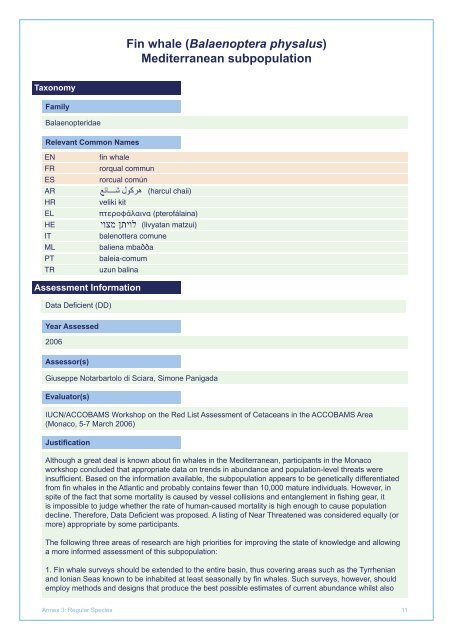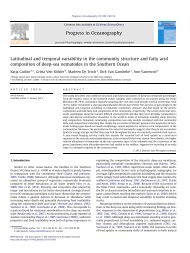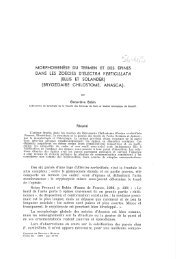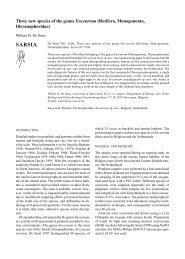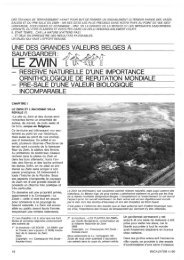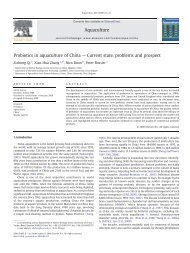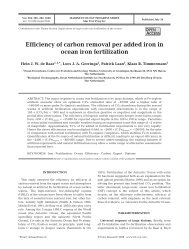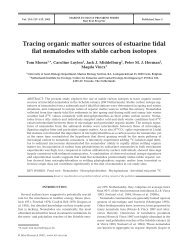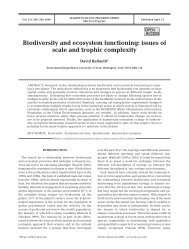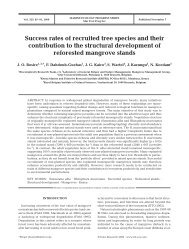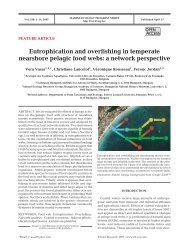download pdf
download pdf
download pdf
You also want an ePaper? Increase the reach of your titles
YUMPU automatically turns print PDFs into web optimized ePapers that Google loves.
Fin whale (Balaenoptera physalus)<br />
Mediterranean subpopulation<br />
Taxonomy<br />
Family<br />
Balaenopteridae<br />
Relevant Common Names<br />
EN<br />
FR<br />
ES<br />
AR<br />
HR<br />
EL<br />
HE<br />
IT<br />
ML<br />
PT<br />
TR<br />
fi n whale<br />
rorqual commun<br />
rorcual común<br />
(harcul chaii)<br />
veliki kit<br />
πτεροφάλαινα (pterofálaina)<br />
(livyatan matzui)<br />
balenottera comune<br />
baliena mbaðða<br />
baleia-comum<br />
uzun balina<br />
Assessment Information<br />
Data Defi cient (DD)<br />
Year Assessed<br />
2006<br />
Assessor(s)<br />
Giuseppe Notarbartolo di Sciara, Simone Panigada<br />
Evaluator(s)<br />
IUCN/ACCOBAMS Workshop on the Red List Assessment of Cetaceans in the ACCOBAMS Area<br />
(Monaco, 5-7 March 2006)<br />
Justification<br />
Although a great deal is known about fi n whales in the Mediterranean, participants in the Monaco<br />
workshop concluded that appropriate data on trends in abundance and population-level threats were<br />
insuffi cient. Based on the information available, the subpopulation appears to be genetically differentiated<br />
from fi n whales in the Atlantic and probably contains fewer than 10,000 mature individuals. However, in<br />
spite of the fact that some mortality is caused by vessel collisions and entanglement in fi shing gear, it<br />
is impossible to judge whether the rate of human-caused mortality is high enough to cause population<br />
decline. Therefore, Data Defi cient was proposed. A listing of Near Threatened was considered equally (or<br />
more) appropriate by some participants.<br />
The following three areas of research are high priorities for improving the state of knowledge and allowing<br />
a more informed assessment of this subpopulation:<br />
1. Fin whale surveys should be extended to the entire basin, thus covering areas such as the Tyrrhenian<br />
and Ionian Seas known to be inhabited at least seasonally by fi n whales. Such surveys, however, should<br />
employ methods and designs that produce the best possible estimates of current abundance whilst also<br />
Annex 3: Regular Species 11


